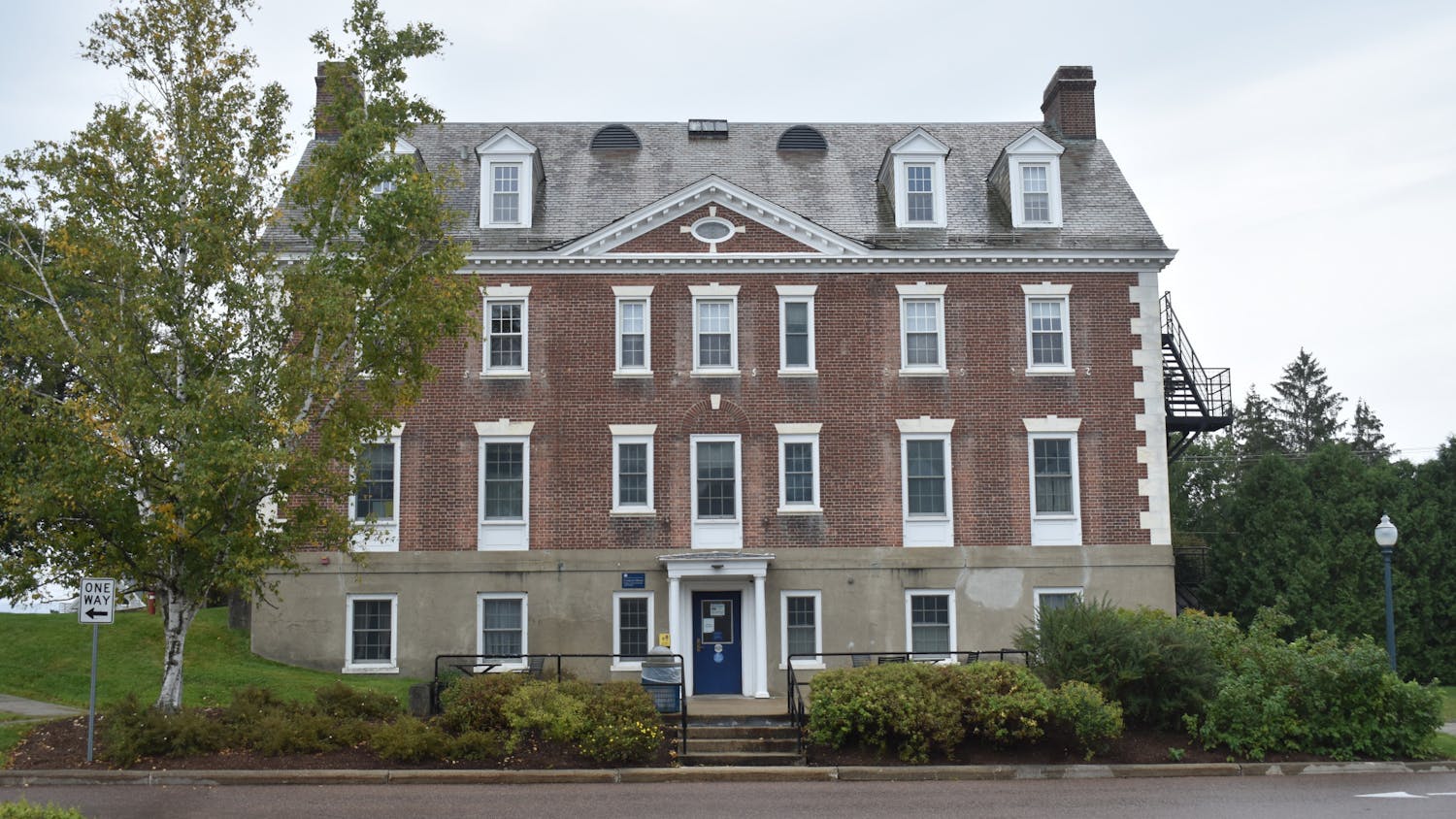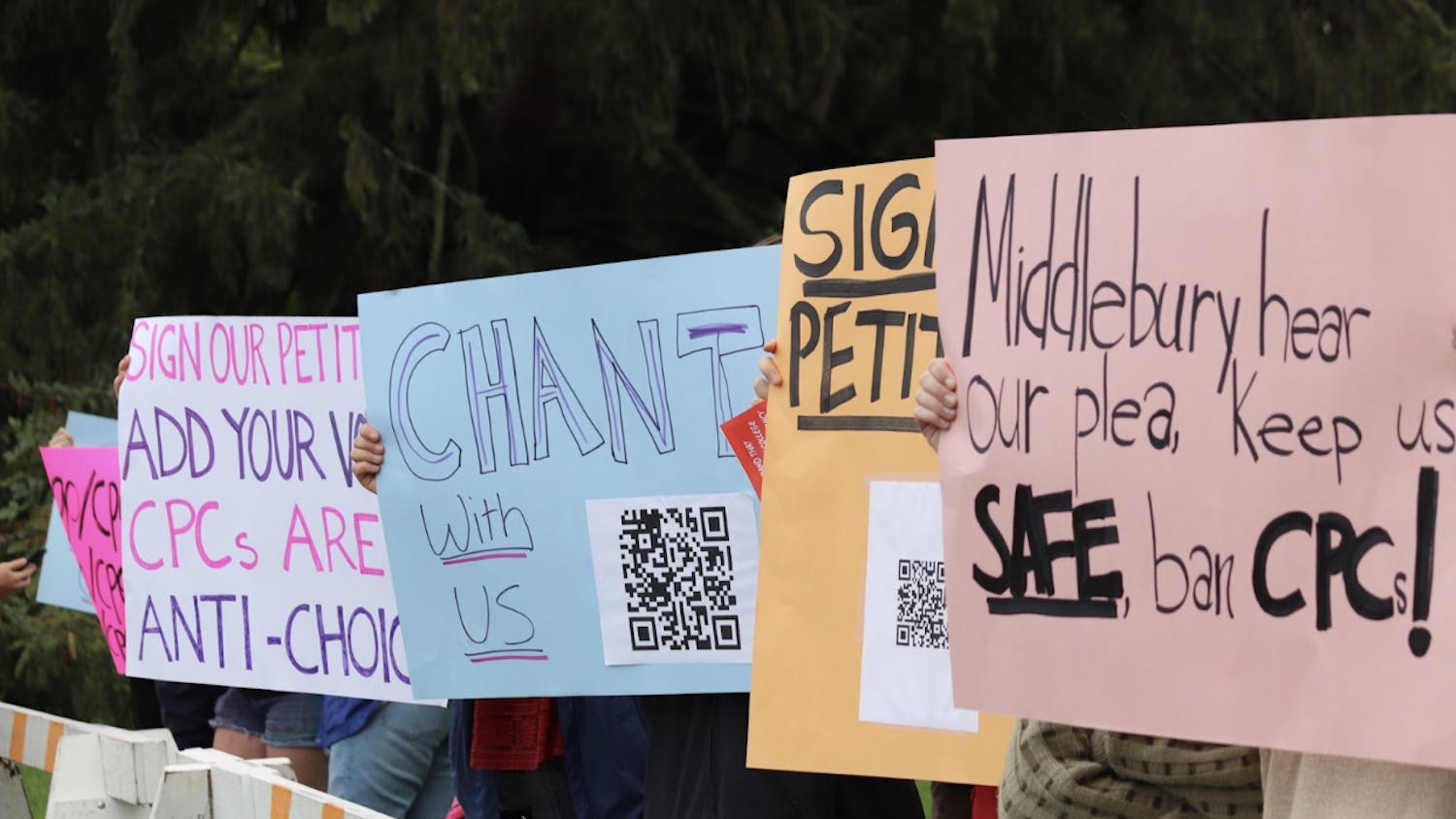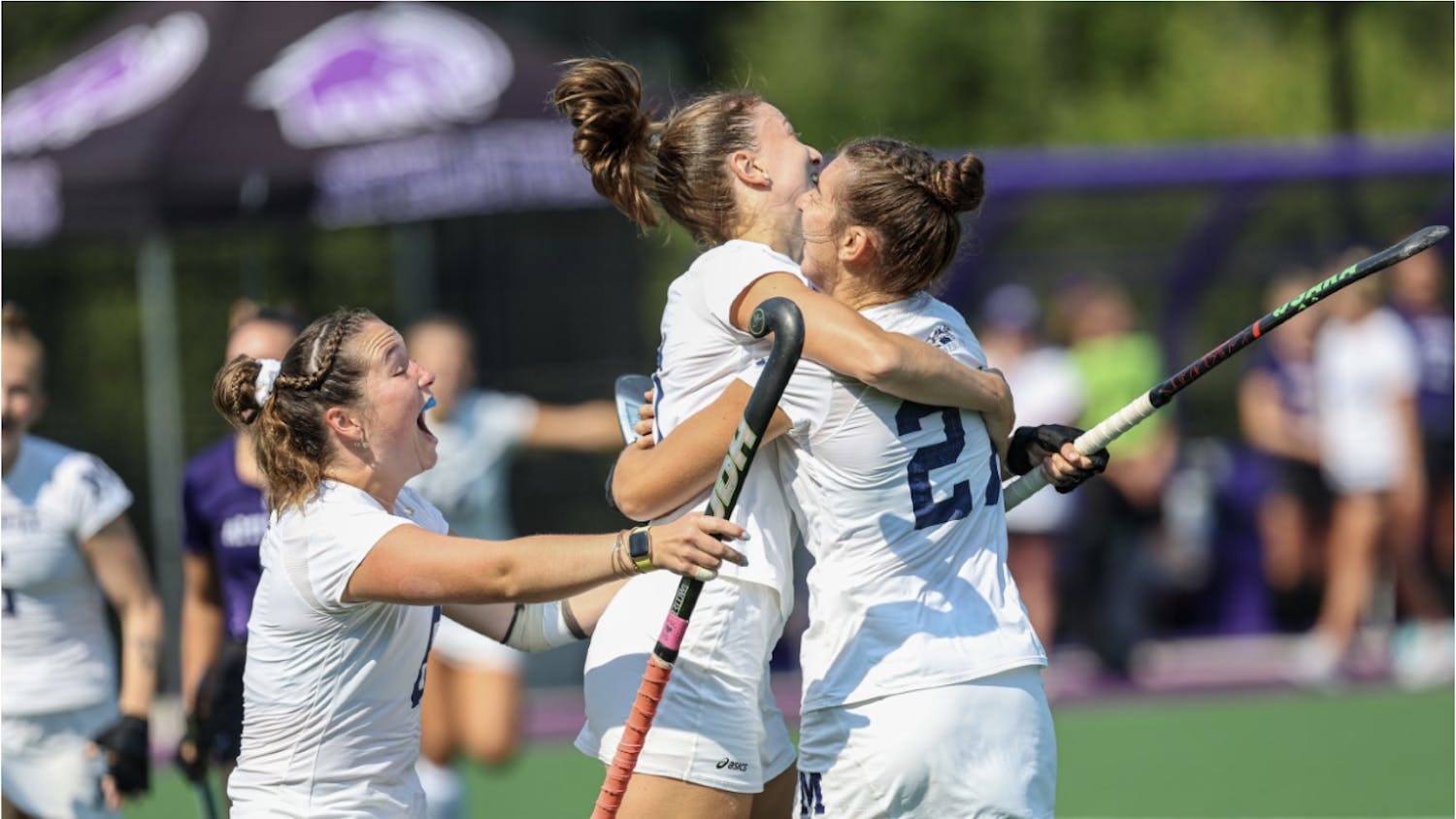A panel titled “Forecasts for a Post-Roe America: Three Disciplinary Perspectives on What Comes Next,” hosted by Vice President of Equity and Inclusion Khuram Hussain on Tuesday, Sept. 20, featured three professors speaking on the future of abortion access.
The panel featured Bertram Johnson, professor of American politics; Caitlin Myers, professor of economics and co-director for the Middlebury Initiative for Data and Digital Methods; and Carly Thomsen, professor of gender, sexuality & feminist studies. The professors provided insight and research on the consequences of the Supreme Court’s June 2022 decision on Dobbs v. Jackson Women’s Health Organization, which effectively overturned Roe v. Wade.
Johnson’s talk focused on the role of abortion in the upcoming midterm congressional elections this November. He said that despite abortion being an issue people care intensely about — statistically more so than in past years — it will have a very narrow effect on the results of the midterms. According to Johnson, abortion remains a small factor compared to other factors such as the economy.
Historically, the president’s party often loses seats in Congress in midterm elections, especially with a lower presidential approval rating, according to Johnson. President Biden’s current approval rating is approximately 43%, so Democrats appear to be on track to lose the House of Representatives regardless of the people’s stance on abortion, Johnson said. He suggested that abortion is more likely to make a difference in the Senate, especially in states with close races such as Wisconsin, Georgia, Nevada, New Hampshire and Arizona.
In his talk, Johnson also emphasized that for the next two years and beyond, abortion laws will be a state policy issue and not a national issue. Political scientists’ data shows that the most conservative states’ policies have become more conservative and the most liberal states' policies have become more liberal. This is the result of advocates pushing for policies in the areas that support them, Johnson said.
States like Vermont and California will be voting this year to codify the right to reproductive freedom in their state constitutions. These amendments “would protect abortion rights explicitly, in a way that would be very difficult for a court to interpert otherwise,” Johnson said. Abortion-related measures are on ballots in a record-high six states this fall, as advocates seek to add explict bans or protections for abortion to state constitutions.
Myers’ section of the panel focused on her and her teams’ findings from using statistical tools to assess causal effects of limiting abortion access, especially changes in travel distance for women seeking abortions. The average distance for a woman in the United States to reach an abortion provider was 33 miles in May 2022, when Roe v. Wade was still in effect. Myers and her research team calculated that once all the states that are predicted to ban abortion have done so, that number will increase to 282 miles. Consequently, she expects to see a 3.5% increase in births in the affected regions.
Myers emphasized that the number of births was not the focus, but rather that the women who would most likely be unable to access abortions would be the poorest and most vulnerable women in the deep South and Midwest.
“This is not a story about national birth shocks,” Myers said. “It is about inequality.”
Myers and her student research team found that there will be a strain in abortion appointment availability in states where abortion is legal, so even women with the means to travel out of state may still be forced to give birth.
Thomsen spoke at the panel about Crisis Pregnancy Centers (CPCs), organizations that often provide false medical information to dissuade women from getting abortions. These centers target the poor and working-class by offering “free” resources like pregnancy tests, according to Thomsen. She reported that 80% of CPC websites listed in official state resource directories provide false medical information. These websites falsely state that abortion leads to breast cancer, infertility and mental health issues, she said.
Thomsen and her research team mapped out CPCs and abortion facilites across the country and found that in a post-Dobbs United States, the number of people living closer to a CPC than to an abortion facility almost doubled. The percentage of Black people living closer to a CPC than an abortion facility more than doubled, and Native Americans would live closer to CPCs than any other ethnic group.
Students held a demonstration at the Student Involvement Fair on Sept. 20 in response to the college allowing Middlebury’s CPC, The Women’s Center, to have a presence at the fair. Through the Public Feminisms Fellowship, a program sponsered by Chellis House and the Gender, Sexuality and Feminist Studies Department, Elissa Asch ’22.5 and the other fellows founded the NESCAC Coalition to Ban CPCs, which includes at least eight schools this summer. Asch and her co-organizers began contacting administrators, asking people to sign their petition and accumulating support before the semester even started.
Professor Thomsen advised the student organizers through their process. “The materials they put together for the protest were thoroughly researched, they were compelling and they were accurate. We cannot say the same thing about the materials that CPCs hand out,” she said. She also said that the college should anticipate backlash when they invite dangerous public health risks like CPCs onto campus.
Thomsen first learned about CPCs when she was an undergraduate student participating in a graduate student’s thesis project on CPCs. The team was sent into CPCs with scripts and took careful note of the organizations’ responses to the scripts. The alarming responses she was given catalyzed her activism. As a PhD student at UCSB, her group successfully banned CPCs from advertising on campus — the first and only time this has ever happened at any college or university.
Thomsen wished to emphasize the larger harmful impact that CPCs have on women’s health.
“I think people in Vermont think that because of the amendment that we’re voting on, people have a false sense of security about abortion access,” she said. “[CPCs] spread medical misinformation, but the negative ways and inaccurate ways that they talk about abortion contributes to anti-abortion ideology.”

Madeleine Kaptein '25.5 (she/her) is a managing editor.
Madeleine previously served as a staff writer, copy editor and local editor. She is a Comparative Literature major with minors in German and Art History. In Spring 2024, she studied abroad in Mainz, Germany, from where she wrote for the Addison Independent about her host country. In her free time, she enjoys journaling, long walks and runs, and uncomplicated visual arts projects.



